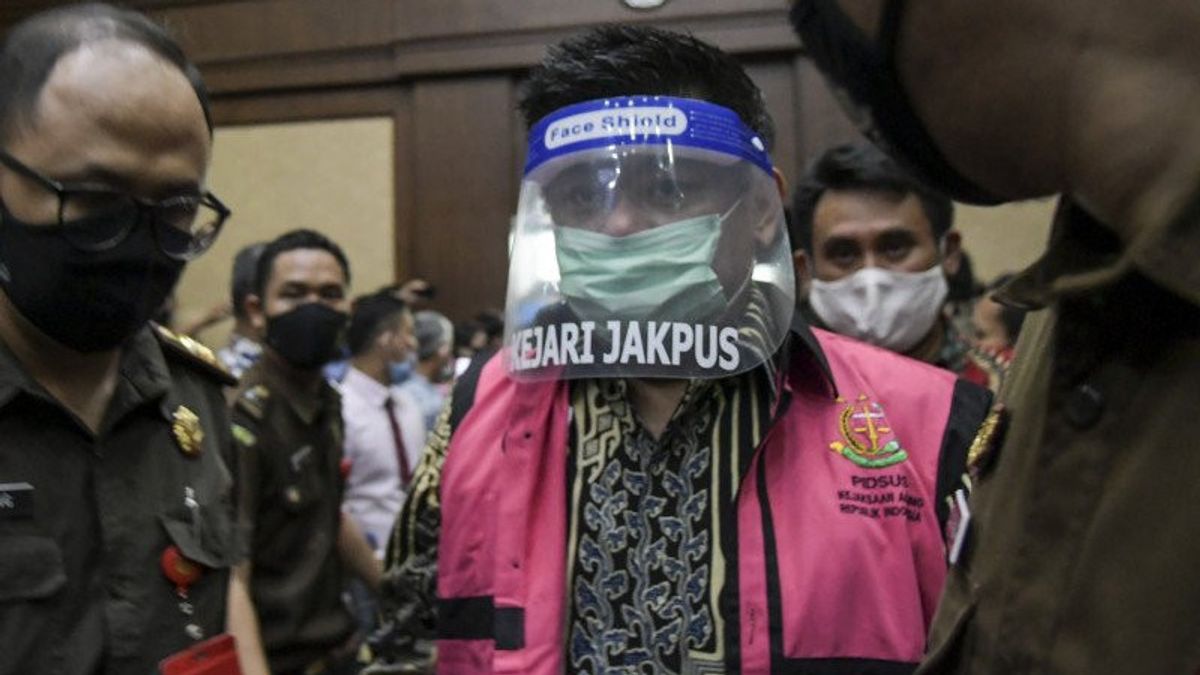JAKARTA - Airlangga University's Professor of Criminal Law, Nur Basuki Minarno, assessed that the criminal prosecution for the death penalty against PT Trada Alam Minera President Heru Hidayat in the alleged corruption case of Asabri, the public prosecutor's team, was incorrect.
There are two reasons why the demand for the death penalty is inappropriate. Nur reviewed the articles in Heru Hidayat's indictment.
"The first reason is because Article 2 paragraph (2) of the Corruption Law (UU Tipikor) is not included in the indictment (from the prosecutor)," said Nur in a written statement, Wednesday, December 8.
According to Nur, the prosecutor only included Article 2 paragraph 1 of the Corruption Eradication Law in the indictment. According to Nur, this article does not regulate the threat of the death penalty.
The threat of the death penalty in corruption cases is regulated in Article 2 paragraph 2 of the Corruption Eradication Act which is not included in Heru Hidayat's indictment.
“Does Article 2 paragraph (2) have to be included in the indictment? In my opinion, Article 2 paragraph (2) must be included in the indictment, then the prosecutor can demand the death penalty. Because in Article 2 paragraph (2), the prosecutor will have to prove that corruption was carried out under certain circumstances. In the explanation of Article 2 paragraph (2) of the Anti-Corruption Law, certain circumstances are situations where natural disasters occur, where there is an economic crisis or repeat criminal acts," said Nur.
The second reason, said Nur, is that the crime committed by Heru Hidayat in the Asabri case does not fall into the category of repeating a crime.
According to Nur, Heru Hidayat's crimes in the Jiwasraya case were almost the same as those in the Asabri case. However, the two cases were handled separately from the Jiwasraya case, which was processed first.
“Can it be said that the defendant Heru Hidayat's actions in the Asabri case are a repetition of the crimes committed by Heru Hidayat in the Jiwasraya case? So, if I pay attention, the events are almost the same, meaning that the time of the incident occurred at the same time. It's just that the prosecution process is different. So, this is not a repeat of a criminal act," he explained.
According to Nur, the crimes committed by Heru Hidayat in the Jiwasraya and Asabri cases fall into the category of realist discourse or meerdaadse samenloop. This means that someone commits a number of criminal acts at the same time and each crime stands alone.
“This is a concourse, in law it is called a realist concourse. So, committing several criminal acts, each of which is threatened with its own punishment. So, it is not appropriate for the prosecutor to give Heru Hidayat a weight on the grounds that Heru Hidayat has committed a repeat of the crime," continued Nur.
This realist consensus, explained by Nur, is different from repeating a crime or residive. According to him, residive occurs when someone commits another crime after being previously found guilty based on a decision that has permanent legal force.
"If the repetition is not criminal or residive like this, he is sentenced to a crime, after he is sentenced, he commits another crime. It's not the Heru Hidayat case, all the criminal acts have been done, only processed not at the same time. So, the Jiwasraya case and the Asabri case are almost the same, only the prosecution comes first with Jiwasraya, then Jiwasraya is finished and then the Asabri case," concluded Nur.
The English, Chinese, Japanese, Arabic, and French versions are automatically generated by the AI. So there may still be inaccuracies in translating, please always see Indonesian as our main language. (system supported by DigitalSiber.id)













